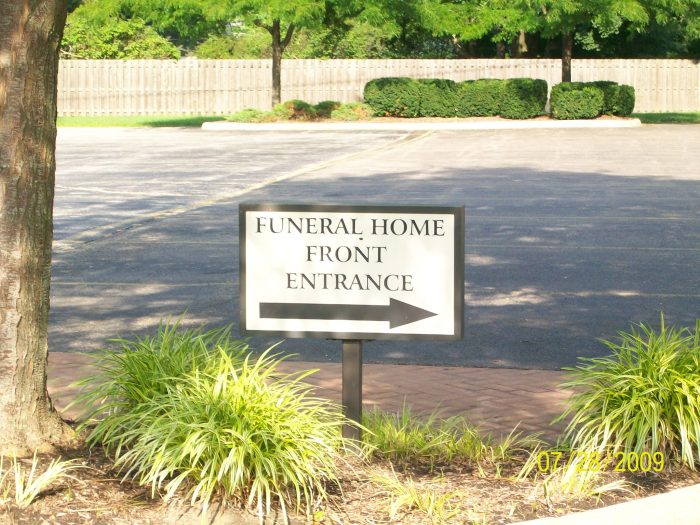Change is inevitable. It touches everything.
Now that we’ve been forced to pause and reflect, our new reality involves confronting mortality—ours and our loved ones—sooner than we might have ever imagined.
With the amount of diversity and religious/spiritual beliefs in the world, why is it that we in the United States have had one primary expression for final services and grief since the Civil War? The traditional, melancholy funeral.
Until the Civil War, most deaths and funerals occurred in the home. End-of-life care involved the family and the community, which included coffin making and grave digging. Because of the war, certain practices (embalming, mass marketed coffins) became the basis for today’s funeral, an industry-made construct rooted in war logistics, not religious or cultural beliefs.
In recent years, a growing movement has begun to raise awareness around the absurd notion most live by: if we don’t speak about death, we can avoid it.
This pandemic has pushed the conversation right to the forefront. The “death positive movement” aims to raise consciousness of our fears and reshape our understanding that death is natural, although our anxiety surrounding it may not be. When we embrace death, we revere life much more. The movement was also founded (by a mortician questioning industry practices) to bring end-of-life rituals back to the family, provide alternatives to funerals, and truly honor the deceased.
We are now free to openly address death, and move our end-of-life planning from theoretical to practical. We can explore alternatives to funeral homes that more fully express who we are, as well as honor our own beliefs, rituals, and traditions. We can pre-prepare documents.
Public health measures attempting to curb the spread of the coronavirus are altering the ways we currently care for the dying, and how we gather to bury or cremate and memorialize our loved ones. We must adhere to the restrictions, while at the same time remaining aware that there are resources and service providers filling a critical gap; many have been around for quite a while.
For more than 10 years, we have created communities and friendships, gathering online. Virtual funerals and webcasts are not new, but because of the pandemic, they are the new norm, allowing for larger group gatherings. A virtual service using videoconferencing can fulfill an immediate need to come together; it is also an invaluable tool for loved ones who cannot travel, or are in poor health.
In a virtual service, you are free to be creative in how you want the time used. For example, physical touch and hugging are often important at a service. Instead, have guests gather items of the deceased and share stories of their importance. Host a candle-lighting ceremony and request guest readings. Invite an officiant to preside. Hire a producer to handle the details. Remember to note in the obituary how family and friends get access to the service.
The cremation rate has risen drastically the past few years, which has made the funeral industry have to face change. The truth is, funeral homes are needed for very few legal requirements. Not only are cremations less expensive, they open many possibilities with personalized, unique celebrations of life. Because a body is not present, these services have never had to take place immediately following death. Families who take a pause should never question their choice to reflect and grieve in the way they desire.
Working with professionals outside of a funeral home offers the ability to truly cater to your loved one, while offering those left behind the space to grieve without the overwhelm and chaos that event planning brings. Simply watch one episode of “Bridezillas” for proof of that!
Creating a sacred space with your own rituals and traditions can happen anywhere, anytime, as long as your heart is open. Other ideas to help honor your loved one:
>> Create a private Facebook group, invite friends, use it as a memorial/altar.
>> Host a synchronized event in different time zones (Example: sit in a park and listen to the deceased’s favorite song, at the exact same time, or read an inspirational passage.)
>> Compile music playlists of the deceased’s favorites on a digital music service.
>> Create art, a photo montage, poetry. Compile into a legacy photo book available online.
>> Start a virtual art group to create prayer beads.
>> Record a legacy video and either edit yourself or hire a pro.
>> Plant a tree in a memorial garden. These are often found in arboretums, national parks, and around the world (search online: planting a memorial tree).
>> Name a star in the sky (search online: name a star).
>> Research and write the family tree; include your loved one’s legacy story.
>> Get a bench made in your city with your loved ones name on a plaque.
Give yourself permission to grieve and acknowledge loved ones in your own, new way. Look to other cultures, online tools, and for members in the community who can assist with every suggestion…and new ideas. Private practitioners are out there filling these needs, including a handful of celebration of life planners. “Death doulas” also will work virtually on legacy projects.
Two organizations every consumer should know are Funeral Consumers Alliance (FCA), with chapters in nearly every state (you can start one if not in yours), and National Home Funeral Alliance. Home funerals are a personal and sacred choice, and despite the services available in professional death care, it is and has always been legal in every state for families to care for their own loved ones at home, from death to final disposition. The majority of the population desires to live their life out at home, but it sadly rarely happens. FCA can help you navigate end of life rules in your state.
The best way to support your loved ones now is by preparing a few documents. These can help everyone reduce unnecessary suffering. Experts recommend a will, living revocable trust, financial power of attorney, advanced medical directive, and durable power of attorney. I recommend preparing your own plan for your celebration of life service so it expresses your final wishes and the legacy you want left behind.
If you are still anxious about death and mortality, attend a Death Café. Founded in the United Kingdom in 2011, these exist worldwide in 72 countries. Participants gather socially to “help people make the most of their finite lives.” There are few rules, but to “eat cake and drink tea.”
Death is not macabre.
It is the very essence of being human and alive.
The truth is, life is fragile; it always has been. As heartbreaking as death is, this pandemic is an opportunity to open up about the expanding possibilities to reclaim our end-of-life options.












Read 6 comments and reply